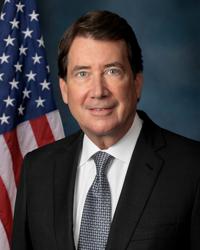0
A bill to prohibit contracting with certain biotechnology providers.
2/5/2024, 8:00 AM
Summary of Bill S 3385
The main purpose of this legislation is to address concerns about the ethical and safety implications of working with certain biotechnology providers. The bill outlines criteria for determining which companies would be prohibited from receiving federal contracts, including factors such as past violations of ethical standards, safety regulations, or environmental laws.
If passed, this bill would require federal agencies to conduct thorough background checks on potential biotechnology providers before entering into any contracts with them. It would also establish a process for reviewing and revoking contracts with companies found to be in violation of the specified criteria. Supporters of the bill argue that it is necessary to ensure that taxpayer dollars are not being used to support companies that engage in unethical or unsafe practices. They believe that by prohibiting contracts with certain biotechnology providers, the government can help protect public health and safety. Opponents of the bill, however, argue that it could limit competition in the biotechnology industry and hinder innovation. They also raise concerns about the potential for the criteria outlined in the bill to be applied inconsistently or unfairly. Overall, Bill 118 s 3385 represents an important effort to address ethical and safety concerns in the biotechnology industry. As the bill continues to be debated and potentially amended, it will be important for lawmakers to carefully consider the potential impacts on both industry and public welfare.
Congressional Summary of S 3385
This bill prohibits federal contracting with certain biotechnology providers connected to foreign adversaries, with exceptions.
Specifically, the bill prohibits executive agencies from (1) procuring, obtaining, extending, or renewing a contract to procure or obtain any biotechnology equipment or service produced or provided by a biotechnology company of concern; or (2) entering into a contract or extending or renewing a contract that uses such equipment or service or that will require the direct use of such equipment or services. Those agencies may not obligate or expend loan or grant funds for such purposes.
A biotechnology company of concern includes BGI Group, MGI Group, Complete Genomics, any subsidiary, parent affiliate, or successor of such entities, and any entity that
- is subject to the jurisdiction, direction, or control of a foreign adversary;
- operates primarily in the biotechnology industry; and
- the Department of Defense (DOD) deems to pose a risk to national security.
DOD must determine, within 90 days after this bill's enactment, whether WuXi AppTec, Axbio, and any subsidiary, affiliate, or successor of such entities, or any other entity headquartered in or organized under the laws of China, is a biotechnology company of concern.
Executive agencies may waive the prohibitions on a case-by-case basis under specified circumstances.
